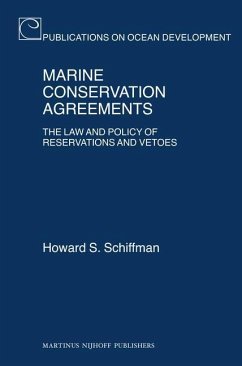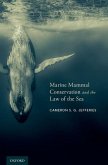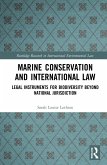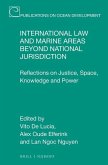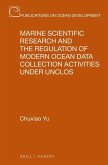Reservations and veto mechanisms found in marine conservation agreements have contributed to the decline of living ocean resources. This book chronicles their use in the history of key marine conservation and management regimes and examines the evolving legal framework that informs, and potentially limits, their use.
'Marine Conservation Agreements: The Law and Policy of Reservations and Vetoes offers a rare glimpse into the decision-making of regional fisheries management organizations and other international organizations that in some way manage living marine resources. By focusing on reservations and vetoes Professor Schiffman explores an element of ocean law and policy that is often discussed as a factor contributing to the decline of fish stocks, whales, dolphins, sea birds and other marine creatures. Even as this issue is regularly discussed it has not been empirically studied in such depth and breadth until now. This book is the latest in the series of Publications on Ocean Development and will be a valuable resource for policy-makers, scholars, environmental activists and anyone else concerned about the conservation and management of our oceans.'
Stuart Beck, Ambassador and Permanent Representative Mission of Palau to the United Nations
Marine Conservation Agreements makes an important contribution to scholarship on reservations and vetoes. ... The author tells a compelling story.
Aldo Chircop Professor of Law, Schulich School of Law, Dalhousie University, Halifax, Nova Scotia, Canada
"One of the strengths of this book is its presentation of the results of painstaking research into state practice within marine conservation regimes with respect to exemptive provisions. In many cases, information on state practice is
simply unavailable; in other cases it is available but accessible only with difªculty. It is useful indeed to have a snapshot of state practice under the various regimes, not least because it helps us to understand the often-opaque decision-making processes through which conservation measures are adopted."
Jaye Ellis Faculty of Law and School of Environment, McGill University
"The very topic of 'exemptive measures' is the focus of Howard Schiffman's seminal book. ... Through
a thorough and well-driven analysis, Schiffman examines the application of exemptive provisions in marine conservation agreements from the perspective of public international law."
Makane Moïse Mbengue, RECEIL
Stuart Beck, Ambassador and Permanent Representative Mission of Palau to the United Nations
Marine Conservation Agreements makes an important contribution to scholarship on reservations and vetoes. ... The author tells a compelling story.
Aldo Chircop Professor of Law, Schulich School of Law, Dalhousie University, Halifax, Nova Scotia, Canada
"One of the strengths of this book is its presentation of the results of painstaking research into state practice within marine conservation regimes with respect to exemptive provisions. In many cases, information on state practice is
simply unavailable; in other cases it is available but accessible only with difªculty. It is useful indeed to have a snapshot of state practice under the various regimes, not least because it helps us to understand the often-opaque decision-making processes through which conservation measures are adopted."
Jaye Ellis Faculty of Law and School of Environment, McGill University
"The very topic of 'exemptive measures' is the focus of Howard Schiffman's seminal book. ... Through
a thorough and well-driven analysis, Schiffman examines the application of exemptive provisions in marine conservation agreements from the perspective of public international law."
Makane Moïse Mbengue, RECEIL

